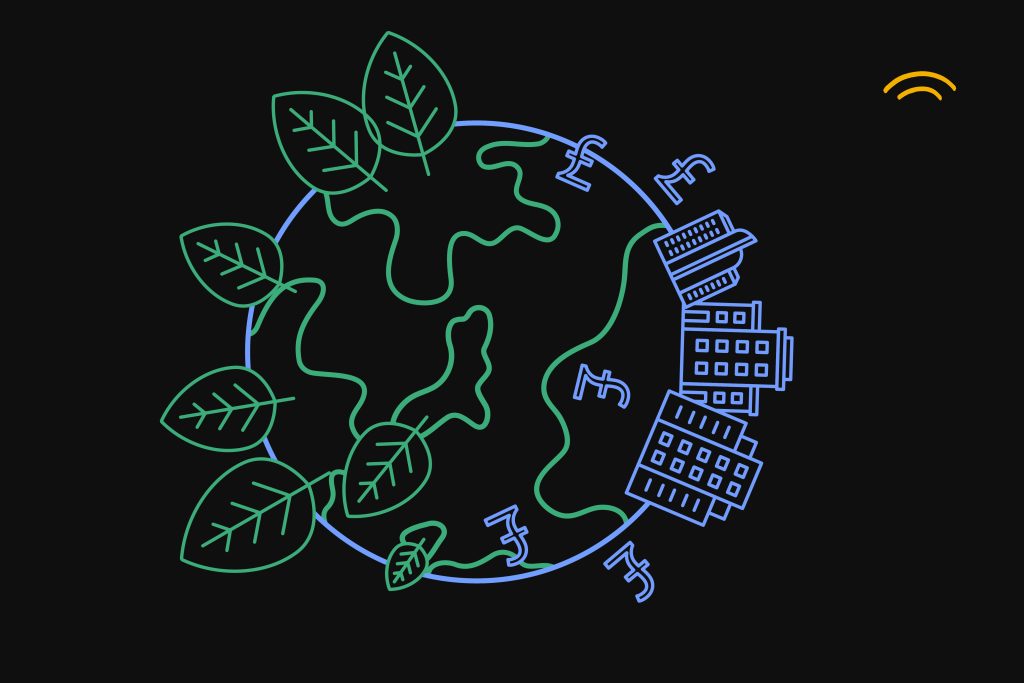
We know that artificial intelligence can accelerate sustainability efforts, but how do we ensure it drives meaningful, responsible improvements?
When correctly implemented, with proper regard for ethical considerations, AI can improve the benefits your products deliver, as well as the impact they have on the environment and society.
Ethical AI practices also support improved decision-making and innovation, leading to more agile product development, and ultimately giving the push to sustainable growth.
Let’s look at the ethical issues you should consider when using AI to manage product data.
What does AI ethics mean?
An algorithm cannot make ethical judgments without human involvement. So when we talk about AI ethics, we’re talking about the human values we put in place to govern how AI behaves.
In other words, in order to promote strong AI ethics, you must first define clear corporate ethics, and then align the AI system with your organisation’s values. This will ensure that the decisions you take based on AI insights are ethically sound.
To ensure that your organisation’s AI systems do not produce misinformation or promote harmful outcomes for your customers, you need to develop and implement algorithms that respect privacy, are transparent and accountable, and minimise negative environmental and societal impacts.
However, the work you need to do to achieve this goes beyond just the algorithm itself; you also need to include ethical best practices in the way you build and implement the system, as well as the data you enter into it.
AI-enhanced decision-making
AI can only work with the data you choose to give it. As the saying goes: rubbish in, rubbish out. In order to ensure that AI-generated insights help you make decisions that support innovation and sustainability, the data you feed it needs to be both accurate and ethically sound.
To achieve this, you must implement AI as part of a top-down strategy that’s integrated throughout your organisation. Sourcing data from multiple disciplines improves accuracy, avoids data gaps, and helps to correct errors. Ongoing collaboration between people from diverse departments and backgrounds also helps to ensure that the AI system continually lives up to the ethical values your business supports.
If your AI implementation is handled only by narrowly-focused technical teams, its use will likely be limited to improving existing processes. But when driven by the C-suite, AI can initiate a wider business transformation that delivers sustainable economic growth and shapes an inclusive, global future that helps humanity and our planet to thrive.
Avoiding bias in AI algorithms
Back to the input data — what if it’s unintentionally biassed? As mentioned above, it’s important to promote inclusive practices when implementing your AI system. Working with diverse teams that represent various points of view promotes the likelihood of sourcing varied input data, while also lowering the risk of continuing existing biases in the data.
You can also combat the prevalence of data bias by including checks and balances such as audits in your data gathering processes. These audits should be geared towards ensuring that data is accurate, and that it represents a broad spectrum of the population.
Using representative and unbiased input data will improve overall accuracy and fairness in the output, which is especially important when you task the AI system to model outcomes or suggest product improvements that aim to serve a wider cross-section of the population.
By designing AI systems to be more transparent and less biassed, we can empower more consumers to make informed choices, fostering trust in the products they use.
Improved operational efficiency
The core strength of AI is its ability to turn huge sets of complicated data into insights that help us make better decisions. It can rapidly process complex data sets, and calculate in seconds what it would take a human mind months or years to understand.
One hugely beneficial outcome of this is the speed at which AI enables us to identify inefficiencies or mistakes, and optimise processes. For example, AI can help us find opportunities for sharing resources or minimising waste, and then test potential solutions. Using cutting-edge scientific methodologies, AI can quickly model the results of potential changes to help us chart the best route past the obstacles in our way.
So instead of spending time on manual data entry and interpretation, your team can focus on higher-value tasks that promote both personal growth and future success for the company.
How Dayrize uses AI to unlock sustainability intelligence
Rigorous, backed by data, and rooted in holistic, sustainable practices, Dayrize’s advanced AI-powered SAAS platform can help you design products that create meaningful societal impact, while minimising environmental impact.
“AI ethics in product development is essential for a fair and responsible digital marketplace. By using ethical AI, companies can ensure that their products are not only innovative but also transparent and unbiased. This approach strengthens corporate integrity and creates long-term value for businesses.”
Bart Nollen
Co-Founder
Dayrize
As well as identifying opportunities for reducing the impact of resource extraction, waste streams and carbon emissions, our system makes it easy for you to measure, manage, and monitor your progress towards regulatory compliance, data maturity, and transparency.
Dayrize’s advanced algorithm analyses all your product data, detects anomalies and produces a quality rating, before cleaning and verifying the data. You can then use our sustainability intelligence software to model changes and view the environmental and social impact of your full product range on one platform.
Whatever your goal, our platform will guide you to take the most effective actions to reach your sustainability destinations, ensuring that you maintain high ethical standards along the way.
Subscribe to Dayrize updates to learn more from leaders in sustainability for businesses.
